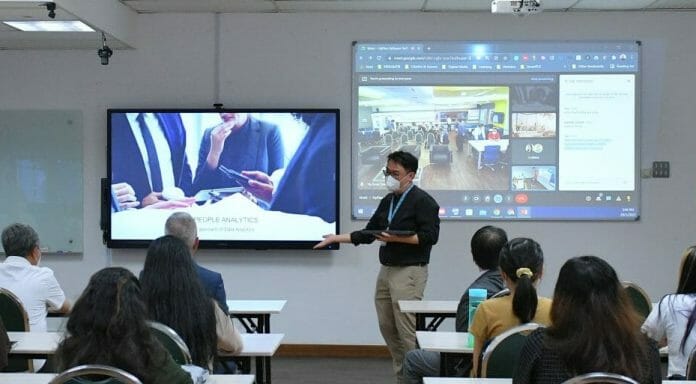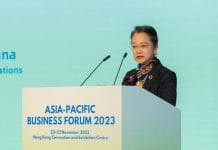By Jachintha Joyce
Online learning has become increasingly prevalent and has gained popularity in Malaysia’s education system, particularly with the advent of the COVID-19 pandemic.
Recently, Datuk Seri Mohamed Khaled Nordin, Minister of the Higher Education Ministry (MoHE), stated that local universities will soon introduce a hybrid and adaptable educational system at public Higher Education Institutions (HEIs) by requiring physical attendance only on the first and final year of studies, with the remaining years conducted online.
Convincingly, this flexible and convenient system has many significant drawbacks that must be acknowledged.
Long-term hybrid education among students will increase the chances of possible academic dishonesty, decreased engagement and motivation, and the failure of students to develop excellent interpersonal skills.
Research by Enas et al. involving Malaysian undergraduate dental students revealed that 85.7% of 147 of them were already concerned about the quality of online teaching during the COVID-19 pandemic (See “Undergraduate dental students’ perspective of online learning and their physical and mental health during COVID-19 pandemic, PlosOne, 2022).
According to the prestigious Stanford University’s definition, hybrid education involves the combination of traditional face-to-face classes and online participation from students, wherein they meet routinely throughout the semester but spend considerable time meeting via the Internet or working online asynchronously.
Contrarily, online learning is conducted entirely in a virtual environment, whereby lectures, assignments and assessments are conducted using online platforms.
So, is the MoHE planning to implement a hybrid or an online system in public HEIs?
While the initiative to save costs and increase student enrolment are commendable, compromising the quality of education whilst focusing on quantity can be a significant drawback for Malaysia.
Rising ethical concern with technological advancement
Academic dishonesty has been a popular culture in HEIs worldwide before the Covid-19 pandemic.
In Malaysia, the Ministry of Education revealed that from 2000 to 2005, a total of 1,710 students from ten universities and colleges breached the terms of the Universities and University Colleges Act 1971 (see “Erosion of academic integrity in higher education system: symbolisation of dishonesty”, Jurnal Pendidikan Malaysia, 2016).
Ethical issues include cheating by using a plagiarism detector, duplicating other people’s work, engaging in, or seeking outside aid using technology and individuals, during assessments, assignments, and coursework submissions.
Research by Aamit et al. in Pakistan found that among 8,590 respondents, 60% admitted cheating on online examinations most of the time; 30% acknowledged cheating at least once on an online exam.
Furthermore, the research also indicates that students from high school, college, and university received better results on online tests than they did on traditional ones (see “Impact of academic cheating and perceived online learning effectiveness on academic performance during the COVID-19 pandemic among Pakistani students”, Frontiers in Psychology, 2023).
In addition, by outlining strict guidelines for using ChatGPT, it is apparent that using this powerful artificial intelligence (AI) tool at Malaysia’s public HEIs is now permissible.
However, if MoHE permits using these powerful AI technologies, the ministry should be prepared with specific mechanisms/tools to handle ethical issues involving AI tools in HEI, especially in assessments, assignments and coursework, not by just constraining students with guidelines.
In comparison, Singapore has been proactive in monitoring the use of AI in HEIs. For instance, Singapore Management University (SMU) and Singapore Institute of Technology (STI) utilised “secure browser and lockdown” tools to monitor students during online examinations, preventing access to other websites until the examination was over.
In addition, students must set up a webcam video while taking their test, in which the AI algorithm will detect the eye movement of students to prevent them from cheating.
Deteriorating physical and mental health of students
While being capable of saving money, students mental and physical well-being will deteriorate over time due to stress, exhaustion, and other factors associated with distant learning.
For instance, social isolation, poor involvement in physical activities, increased stress and anxiety, and increased digital fatigue due to heightened workloads of coursework and assessments with limited deadlines are some significant impacts of long-term hybrid learning on students.
Research by Sylvia et al. involving 285 Malaysia private HEIs students found that there was an alarming prevalence of anxiety (57.2%), depression (58.6%) and high stress (79.7%) amid the sudden transition to e-learning during the pandemic (see “Psychological well-being amongst students in a Malaysian medical college one year into the COVID-19 pandemic: a cross-sectional study”, Journal of Global Health Reports, 2022).
Long-term online learning endangers students’ health, as they spend a longer time facing their digital devices every day, which increases cases of social isolation.
Digital connectivity and engagement of students
The digital divide and disparities geographically, disrupt the learning sessions of students. Adi Jafar et al. (2022) found that the ability of Malaysian students to participate in the online learning programme is significantly influenced by their geographical locations.
For instance, 52% of students in Sabah faced difficulties with technical and internet connections during online learning. (see “Assessing the challenges of e-learning in Malaysia during the pandemic of Covid-19 using the geo-spatial approach, Scientific Reports, October 15, 2022).
Equitable access to digital connectivity is essential for quality education.
In comparison, Estonia started building its’ digital infrastructure even in 2001, whereby all schools were with computers and internet networks and by 2018, the country digitalised all study materials for students in secondary schools.
During the pandemic, Estonia had one of the highest access to the Internet (73%) and to school systems (69%) (See “Initial education policy responses to the COVID-19 pandemic: Estonia”, OECD, 2020), compared to Malaysia, whereby one in three students did not have access to online learning during the Covid-19 Lockdown (see “Education Ministry: Over one in three students couldn’t access online learning during MCO, Malaymail, 16 July 2020).
Internet coverage is not equivalent to Internet access by students during online classes.
Marketability of students in the employment market
Study indicates the conventional classroom is still preferred by roughly 60% of employers, who give its graduates preference for jobs over online graduates (See “Online Courses Vs. Traditional Classroom – Which Is Better?”, After School Africa, 2022).
Another survey involving 1,006 hiring managers found that while graduates from agriculture and forestry and construction profit 10.8% and 4.9%, respectively, from online learning, 60% of employers said white-collar professionals benefit more from it. Additionally, when recruiting or promoting an entry-level employee, 47% of these employers rated education higher than experience. (See “Do employers value online learning?”, Future Learn, 2021)
Therefore, it is evident that relevant and high-quality and marketable on-demand education programmes are crucial for the employability of fresh graduates in Malaysia.
Inadequate public tertiary education will increase the likelihood that parents will have to shell out for the enrollment of their children in private HEIs.
The fact that Malaysia still has a long way to go before implementing the hybrid/online tertiary education mode in HEIs is more evident than ever.
In the meantime, apart from addressing the above gaps in Malaysia’s hybrid/online preparedness, the following are a few other policy recommendations by EMIR Research for the stakeholders to consider before putting this proposed new system in place:
Expanding the enrollment for value-added university programmes in HEIs
A recent poll conducted by the UCSI Poll Research Centre involving Malaysian Sijil Pelajaran Malaysia (SPM) graduates found that among 1,000 of its’ respondents, 39% were eager to begin working, while 10% were unsure about their next steps.
Additionally, this 49% of respondents’ lack of interest in continuing their education was caused mainly by their financial situation and their view that obtaining a higher education degree is not financially rewarding and that education does not guarantee better jobs.
It is recommended that MoHE analyse university programmes that are currently on-demand in the market and add value to the students’ career development, for example, through boosting student enrolment in programmes such as computing and information technology (IT), digital designing, marketing, business management and human resources.
By doing this, there is a strong likelihood that more students will be open and interested to enroll in public and private HEIs for higher learning.
Revising the current student-educator ratio in public HEIs
In 2020, the academic staff-to-student ratio was 1:18.55, and this number varied depending on the universities, programme and their capacity.
There have been classes of 1:100 students not only during traditional classes but during online learning.
The high student-to-educator ratio leads to ineffective teaching and learning experience for students. It often causes a decrease in student attention span as the educator cannot closely monitor and provide targeted intervention in areas where the feedback is crucial for a student’s progress.
On top of that, this physically and mentally drains the health of educators as well.
It is recommended that stakeholders hire additional qualified educators to reduce the ratio, especially for the university core programme. Besides, regular monitoring and evaluation of the student-to-educator ratio is needed so that timely adjustments can be made to improve the effectiveness of quality education in HEIs.
Robust emphasis on financial literacy among Malaysian students
Recently, enough emphasis has been made in public that financial literacy is an essential life skill.
However, shockingly, a study of 500 undergraduate and graduate students at Malaysian universities revealed that 369 (73%) of the participants had never taken a course in financial management (see “Financial Literacy Among Gen Y In Malaysia, European Proceedings, 2020).
The Ministry of Education (MoE) and MOHE should prioritise educating students about financial literacy, including budgeting and saving, from an early age. This may be accomplished by including such courses into the curriculum across the programmes as compulsory or by establishing clubs and organisations concentrating on financial literacy in schools and colleges.
In the final analysis, apart from being a social concern, the long-term unpreparedness to implement hybrid learning and address the most obvious structural problems in HEIs risks Malaysia’s Education Blueprint 2015-2025 to nurture knowledgeable and ethical students.
Furthermore, Malaysia’s cash flow may be straining due to a survey showing 55% of 7,400 students are unlikely to prefer online programmes for international degrees. (see “The Impact of COVID-19 on Study Abroad: April 2020 Survey Results, education.com, April 24, 2020).
Malaysia is an international educational hub for students from China, Indonesia, and Vietnam, contributing significantly to strengthening the Malaysian Ringgit, among other things.
The poor quality and management of Malaysia’s tertiary education will push most of these students to pursue their education in other neighbouring countries.
Therefore, the MoHE needs to meticulously prepare if it intends to implement a hybrid learning system in public universities, as education provides stability and security to one’s future.
Jachintha Joyce is Research Assistant at EMIR Research, an independent think tank focused on strategic policy recommendations based on rigorous research.









